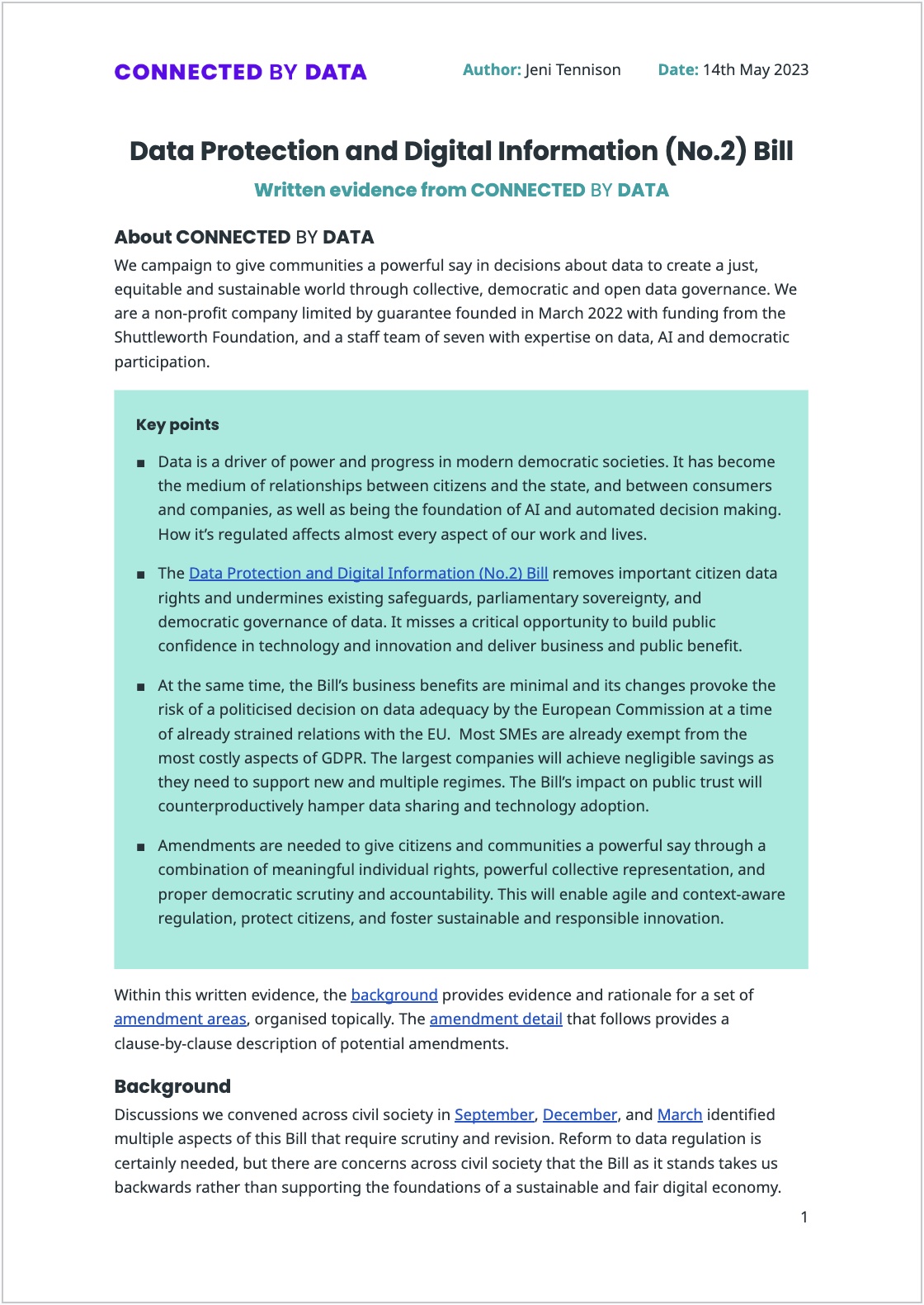Data Protection and Digital Information Bill: Written evidence to Commons Bill Committee
- Data is a driver of power and progress in modern democratic societies. It has become the medium of relationships between citizens and the state, and between consumers and companies, as well as being the foundation of AI and automated decision making. How it’s regulated affects almost every aspect of our work and lives.
- The Data Protection and Digital Information (No.2) Bill removes important citizen data rights and undermines existing safeguards, parliamentary sovereignty, and democratic governance of data. It misses a critical opportunity to build public confidence in technology and innovation and deliver business and public benefit.
- At the same time, the Bill’s business benefits are minimal and its changes provoke the risk of a politicised decision on data adequacy by the European Commission at a time of already strained relations with the EU. Most SMEs are already exempt from the most costly aspects of GDPR. The largest companies will achieve negligible savings as they need to support new and multiple regimes. The Bill’s impact on public trust will counterproductively hamper data sharing and technology adoption.
- Amendments are needed to give citizens and communities a powerful say through a combination of meaningful individual rights, powerful collective representation, and proper democratic scrutiny and accountability. This will enable agile and context-aware regulation, protect citizens, and foster sustainable and responsible innovation.

